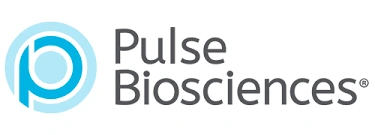
Symposium 2025: Pulse Biosciences Presents Nanosecond PFA 360° Data
Pulse Biosciences, Inc. (Nasdaq: PLSE), a company utilizing its innovative Nanosecond Pulsed Field Ablation™ (nsPFA™) technology, announced today the late-breaking data from its first-in-human feasibility study of the Nanosecond PFA 360° Cardiac Catheter System. This data was recently presented at the 30th Annual AF Symposium 2025 meeting.
Pulse Biosciences, Inc. (Nasdaq: PLSE), a company pioneering the use of its proprietary Nanosecond Pulsed Field Ablation™ (nsPFA™) technology, recently presented late-breaking data from its first-in-human feasibility study of the Nanosecond PFA 360° Cardiac Catheter System at the 30th Annual AF Symposium 2025. This study is designed to assess the initial safety and efficacy of the system for treating atrial fibrillation (AF), a common and potentially debilitating arrhythmia.
The study, registered under NCT06696170, has treated 77 patients to date, with six investigators, including prominent electrophysiologists Dr. Vivek Reddy, Prof. Petr Neuzil, and Dr. Johan Vijgen, contributing to the research. The patients were treated at Na Homolce Hospital in Prague and Jessa Hospital in Hasselt. The results of the first 30 patients, who underwent remapping approximately three months after their ablation procedure, have shown promising outcomes.

Initial Cohort Study Results
The initial cohort data demonstrated positive results for the Nanosecond PFA 360° Cardiac Catheter System. All lesions (100%) achieved acute success with conduction block, indicating effective treatment. At approximately three months post-ablation, the pulmonary vein isolation (PVI) success rate was 92.4%, with 109 out of 118 pulmonary veins isolated successfully. These results suggest that the system provides reliable and durable isolation of the pulmonary veins, a key goal in AF ablation procedures.
The procedure itself proved to be highly efficient. The total PVI ablation time averaged 11.6±4.5 minutes, significantly reducing procedure time compared to traditional ablation techniques. Additionally, the total procedure time was 88.3±30.1 minutes, with fluoroscopy time averaging 6.9±2.4 minutes. Left atrial dwell time—the time the catheter remains in the left atrium—was 29.6±15.3 minutes. These findings indicate that the Nanosecond PFA 360° Cardiac Catheter System can achieve rapid and efficient ablation, potentially reducing the time and complexity of AF procedures.
While the procedure demonstrated a high degree of success, there were a few adverse events (AEs) reported. One primary serious adverse event (SAE) occurred: a cardiac perforation. Additionally, two non-serious adverse events were recorded, including one case of vertigo, which was managed conservatively, and one case of creatinine elevation, which was treated with intravenous saline. All adverse events were resolved without sequelae, suggesting the system’s safety profile is favorable.
Live Case Transmission at AF Symposium
At the AF Symposium, Pulse Biosciences also showcased the Nanosecond PFA 360° Cardiac Catheter System in a live case transmission. The procedure, which was performed by Prof. Petr Neuzil and Drs. Moritoshi Funasako and Jan Petru, demonstrated the catheter’s ability to rapidly and efficiently isolate the pulmonary veins. The Symposium was highlighted with 3D mapping and navigation using the Abbott Ensite X System, showcasing the catheter’s precision and the effectiveness of nsPFA technology in real-time.
The live case transmission further underscored the potential of the Nanosecond PFA 360° Cardiac Catheter System to streamline the workflow of AF ablation procedures. The system’s unique design, featuring a pliable catheter that enables nimble and precise positioning, Symposium combined with its differentiated energy delivery, allows for consistent, durable transmural ablations.
About Pulse Biosciences
Pulse Biosciences is a pioneering bioelectric medicine company focused on developing technologies that improve the quality of life for patients. The company’s CellFX® nsPFA™ technology utilizes nanosecond pulses of electrical energy to non-thermally clear cells while sparing adjacent noncellular tissue. Pulse Biosciences is actively pursuing the development of its nsPFA technology for the treatment of atrial fibrillation and other medical conditions where it could have a significant positive impact on healthcare outcomes. Headquartered in Miami, Florida, Pulse Biosciences also maintains an office in Hayward, California.
The company’s nsPFA technology Symposium represents a breakthrough in bioelectric medicine, with applications in both cardiac care and other medical fields. Pulse Biosciences remains committed to advancing its technology through rigorous clinical studies and working with leading physicians to deliver its innovative solutions to the broader healthcare community.
Pulse Biosciences, CellFX, Nano-Pulse Stimulation, NPS, nsPFA, and CellFX nsPFA are trademarks or registered trademarks of Pulse Biosciences, Inc. in the United States and other countries.




